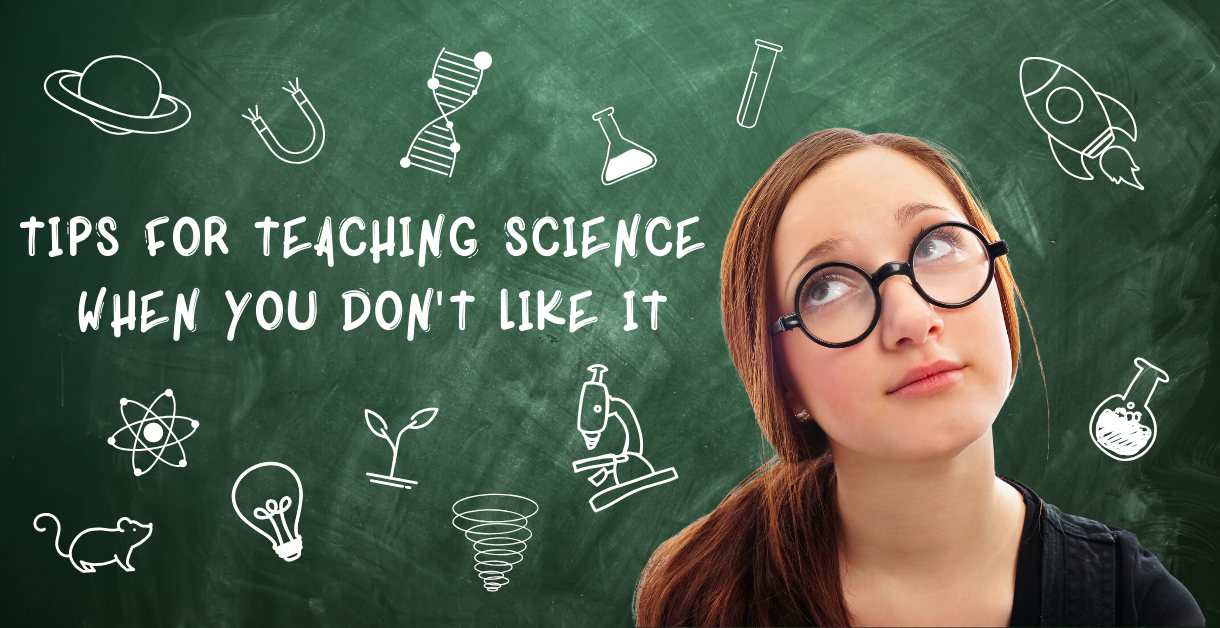Back when I was in school, science was my least favorite subject. Luckily, because I was an overall good student, I was able to pass the classes, but that was about all. I barely retained much of anything I had learned and pretty much dismissed the fact that I was ever going to need all that information in the future. I mean who was ever going to ask me the atomic number for hydrogen or how fast was the speed of light?
Fast forward to when we began our homeschooling years. I really was not savoring the thought of teaching my children science and figured we would rely on the curriculum to help us get through it. But it turns out that my children absolutely loved everything about science and were always wanting to learn more. What was this science-challenged homeschool mom to do?
Here are some things that helped me successfully teach my children science. And, as an added bonus, in the process I even grew to enjoy science more.
Give nature study a try – When we moved our studies outside our classroom walls and began looking closer at the natural world around us, it was a huge game changer for me in particular. We used Anna Botsford Comstock's Handbook Of Nature-Study and the Handbook of Nature Study Outdoor Hour Challenge website to help guide our studies. We were not only able to enjoy learning about plants, animals, astronomy, weather and the planet through first-hand observations, but we also created many wonderful memories making discoveries together.
Experiments, Microscopes and Beakers, Oh My! – By making science more hands-on without solely relying on reading and memorization, it helped my children to develop observational skills, encouraged them to think independently and learn to make determinations based on evidence. Many science curricula have experiments and other hand-on activities built into them and we encouraged our kids to expand upon those by coming up with their own variations to further understand concepts.
Visit Science Museums and Zoos – We are very lucky in that we are centrally located to a variety of science museums and zoos within less than 2 hours of our home. We were able to take advantage of their "Homeschool Days" programs and classes and learned a great deal through participating in them.
Science Documentaries – While we tried to limit television screen-time for our children, we did sometimes find that a quality science video was very helpful in explaining and demonstrating more difficult science topics and appealed especially to our visual and audio learner.
Encourage Kids to Dig Deeper into their Interests – We understood that we needed to provide a good overall background across the various science fields, but whenever my children showed a stronger interest in a particular topic, they lingered a little longer doing additional exploration, quite often without needing any direction from me. My oldest is a natural computer whizz, building and programming his first computer when he was about 11 or 12 from free scrap parts and searching manuals for instruction (this was before we had internet in our home). My middle son enjoys environmental science and botany and was able to incorporate this passion into his Eagle project for Boy Scouts. My daughter is fascinated with weather as well as anatomy and volunteered in the neonatal unit in her early teens. They pursued these interests on their own, seeking out information in books and from other more knowledgeable people and resources. My job was to provide them with the opportunities to get what they needed to achieve their goals.
Seek help for the hard stuff – In my day, 2 years of science was all that was required for graduation. The only courses I took were Earth and Space Science and Biology. So, when my children needed (and wanted) other science courses, I confess, I was in a bit of a panic. But it all worked out. For some of the courses they took, such as Physical Science and Botany, we learned and studied together. But when they took Chemistry and Physics, I reached out to people who knew those subjects and enlisted their support. My son also choose to take Marine Biology in his senior year and my daughter did Anatomy. Google and the internet as well as the library were invaluable resources.
It was important that I made a conscious effort not discourage my children's interests with my dislike of the subject and I have always been up-front with my children when it came to letting them know my limitations in anything we studied. By recognizing some of the reasons I may not have enjoyed science during my learning years also helped me try to avoid repeating those things and try to do something different to keep their joy, excitement and interest alive. In turn, in teaching my children in a way different than I was taught, I, too, have grown to appreciate and enjoy the scientific world.
(BTW - The atomic number for hydrogen is 1 and the speed of light is 299,792,458 meters per second. ROTFL)


